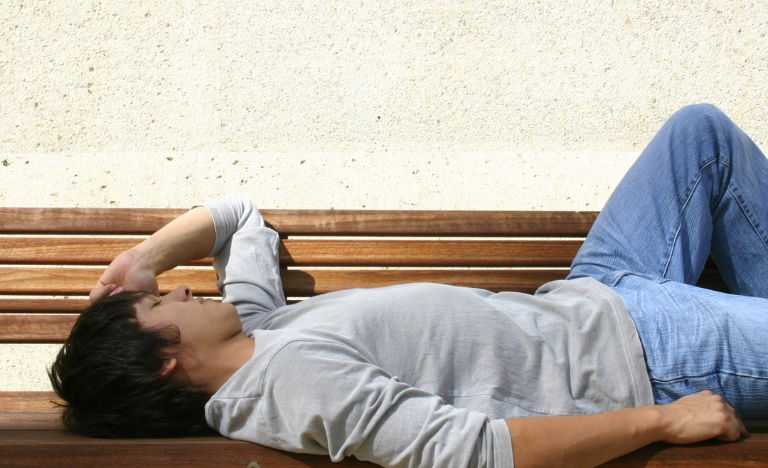On any given day, *Adam will show up at our drop-in centre, tuck underneath a warm blanket on one of the couches and close his eyes.
It’s there that he’s finally able to rest after spending the night on the city streets trying to stay safe.
Adam has been homeless for two months, having spent nights in a tent, in a sleeping bag on a park bench, and on the ground. He visits our drop-in to get something to eat, to have a shower and use the computer and phone to repeatedly try to find an available shelter bed in the city.
The resulting sleep deprivation from these extremely stressful circumstances is impacting his health, well-being and ability to hold down a job as a cashier at a restaurant.
“I’m not really getting sleep staying in the park, so I’ve been calling in sick and I’m not sure how long I can hold my job,” he said. “Just a bed will help me get back on my feet.”
Having a safe place to go to sleep every night would make all the difference for him.
The shelter system overcapacity crisis in Toronto is contributing to a chronic lack of sleep among people experiencing homelessness, who find themselves living through a constant state of alertness to protect themselves in dangerous circumstances. It’s a state that is both unsustainable and detrimental to a person’s health.
“Sleep is a basic human physiological need, it is essential for physical and mental well-being and overall health,” says Covenant House health clinic nurse Paula Utomi, whose team sees youth who come to the drop-in centre.
“For youth experiencing homelessness, not being able to catch a good night’s rest has a harmful impact on their brain development, which continues until about age 25,” she says. “It also weakens their immune system making them more susceptible to illness and contributes to increased challenges with mental health.”
“Layer on top of that the very real fear of danger, that without a secure place to sleep, you will be put at heightened risk of harm,” Paula says. “Because you want to keep safe, your body’s in a high state of emergency stress so it’s hard to rest.”.
Young people living on the streets are also vulnerable to violent and dangerous adult circumstances that are both mentally and physically taxing.
“We’ve had young people come into the clinic or who we’ve seen at the drop-in centre who have been hurt, assaulted or robbed. That’s very common, so safety is a big priority,” she says.
At the drop-in centre, staff connect with every person that arrives to check-in, offering them a warm meal and support.
Until he’s able to find an available shelter bed or another safe place to stay, Adam says he will keep coming back to catch naps and find support.
“The drop-in centre is a safe space,” he says. “Technically, my home.”

